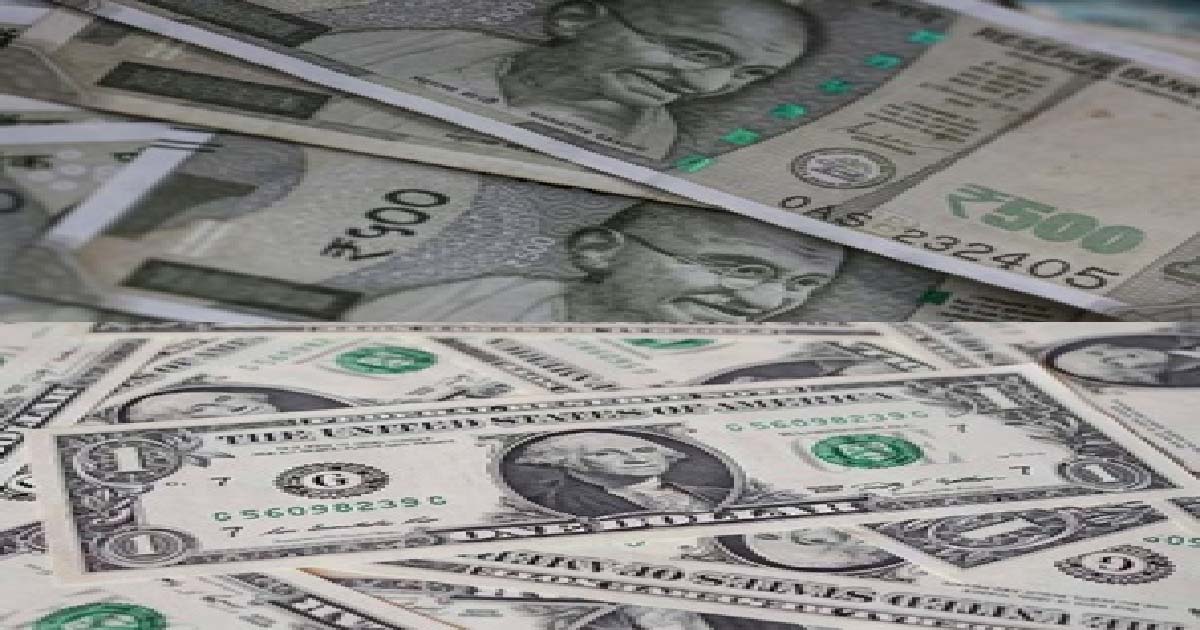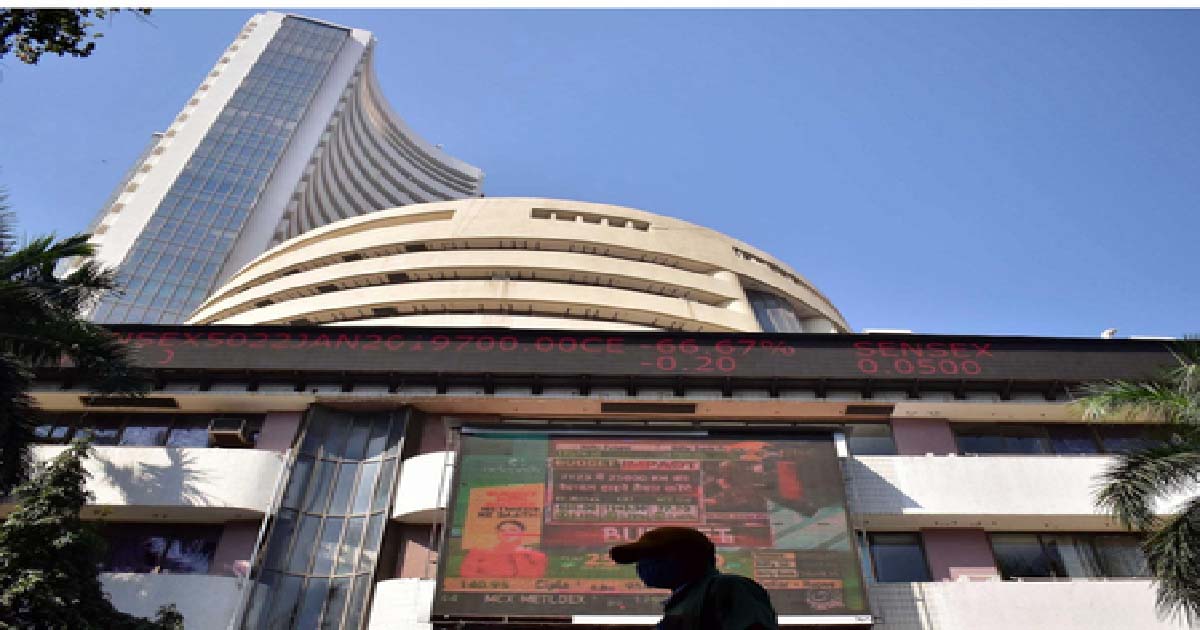Business
Budget 2023: Health sector needs eco-system for infra & technological growth, say Experts

After the Covid pandemic hit the world three years ago, the healthcare sector has become central for the 2023 budget as the industry awaits the Centre’s intervention to make health care affordable and accessible to all.
The Union Budget for 2023-24 is scheduled to be presented in Parliament by Finance Minister Nirmala Sitharaman on February 1.
As per experts, the healthcare sector needs commercially low capital intensive projects at district and taluka levels to address large patient volume and access with affordable pricing for quality services. The healthcare industry is eagerly waiting as the experts believe that the government should enhance its budgetary support in increasing healthcare and insurance penetration following the pandemic.
Karan Rathore, Vice Chairman, Services Export Promotion Council (SEPC), told IANS, “In cognizance of the impact of the pandemic on the services sector, especially medical tourism and the healthcare sector, the industry expects innovative ideas to augment and accelerate engagement. To accelerate the healthcare sector and position India as a wellness destination globally with reliable and credible healthcare, the budget needs to provide and enable an eco-system for growth both economic and technological”.
Tourism policies and provisions, including facilitation of visas, infrastructure development, connectivity etc need to be the focus, but the more inclination should be towards the digitalisation of the sector by making it more customer-centric and easily accessible for all, the SEPC Vice Chairman said.
Recently, speaking at the Health Working Group of G20 India meeting, Dr V.K Paul, Member (Health), NITI Aayog, said that the Medical Value Travel (MVT) plays a crucial role in eliminating healthcare disparities across the globe and through the first Health Working Group meeting, G20 India Presidency aims to an impetus to create pathways to bridge this gap. “There is great opportunity for utilizing traditional medical practice like Ayurveda in the Medical Value Travel sector which is witnessing a combined annual growth rate of over 23 per cent”, he said.
Rajeev Taneja, Founder of Global Care, said that the Medical Value Tourism sector has suffered a series of setbacks in the last two years and the industry expects government support for the sector’s recovery. “Facilities, including visa approvals and ease of access, a repository for accessing information, and infrastructure development in not just the metro cities but pan India as well for pre and post-treatment care, are a few important steps that need to be accommodated in the budget. These will help boost investment and incentivize the industry, particularly in Tier 2 cities across the country”, he said.
The health experts believe that there is a need to make sure that the facilities and treatments are on a par with the international standard and a favorable budget will help with the same.
Underlining the need of healthcare investment in Tier 2 and 3 cities, Prateek Ghosal, Chief Strategy Officer, Ujala Cygnus Group of Hospitals, said, “In order to attract more private sector investment in Tier 2 and 3 cities of India, healthcare should be given infrastructure status which will enable access to low-cost funding as well as provide tax benefits, further reducing input costs. While during the COVID-19 pandemic, the RBI incentivized liquidity for emergency healthcare services by the extension of credit under priority-sector classification, this move should be made permanent, particularly for projects focused on creating infrastructure in Rural India,” he says.
“With the recent Covid experience at the back of minds, the healthcare industry expects a technology revolution in the sector, along with accessibility, easy availability, and affordability. Accessibility to quality healthcare has been a big issue in India, especially in Tier 2 and 3 cities. We hope the upcoming budget has some provisions regarding opening more tertiary care hospitals in underserved or remote areas,” said Abhishek Kapoor, ED, Regency Health.
Business
India reaches 709 million active UPI QRs, logs 59.33 billion transactions in July-Sep

Mumbai, Dec 18: The unified payments interface (UPI) transaction volumes rose 33.5 per cent (year-on-year) to 59.33 billion transactions in the July-September period, as transaction value grew 21 per cent to Rs 74.84 lakh crore, a report showed on Thursday.
India reached 709 million active UPI QRs, marking a 21 per cent increase since July 2024. Dense QR acceptance across kiranas, pharmacies, transport hubs, and rural markets has made scan-and-pay the default payment mode nationwide, according to the report by Worldline India.
Person-to-merchant (P2M) transactions continued to outpace person-to-person (P2P), reflecting UPI’s dominance in everyday retail payments.
P2M transactions were up 35 per cent to 37.46 billion transactions while P2P transactions rose 29 per cent to 21.65 billion transactions, the report said.
The third quarter (Q3 2025) further reinforced India’s position as the world’s most dynamic real-time payments economy — where every scan, tap, and click is reshaping consumer and merchant behaviour.
The average ticket size declined to Rs 1,262 (from Rs 1,363), highlighting increased usage for micro-transactions such as mobility, food, healthcare essentials, and hyperlocal commerce.
Point of sale (PoS) terminals grew 35 per cent to 12.12 million (July 2024–July 2025). Bharat QR stood at 6.10 million, witnessing marginal decline amid the shift toward UPI QR dominance.
Private banks led acceptance deployment, accounting for 84 per cent market share. While credit card issuance grew by 8 per cent (on-year) to 113.39 million cards, debit cards reached 1.02 billion and prepaid cards stood at 470.1 million.
Credit card transactions grew 26 per cent to 1.45 billion, with transaction value at Rs 6.07 lakh crore. Debit card transactions declined 22 per cent, reflecting migration of low-ticket spends to UPI, the report showed.
Mobile and tap-based payments continued to accelerate, with contactless adoption gaining momentum across metros, mobility services, and quick-service retail.
“The outlook for Q4 2025 and early 2026 points to accelerated innovation and deeper ecosystem integration. Interoperable QR is expected to move from pilot phases to everyday usage across mobility, healthcare, fuel stations, and public utilities—delivering a unified scan-and-pay experience,” the report mentioned.
Business
Indian rupee likely to bounce back strongly in 2nd half of next fiscal: SBI report

New Delhi, Dec 17: Geopolitical uncertainties driven by the delay in the India-US trade deal have been the single-most important reasons for the rupee sliding against the US dollar, an SBI Research report said on Wednesday, adding that the rupee is likely to bounce back strongly in the second half of the next fiscal.
India’s trade data shows the remarkable resilience in navigating through prolonged uncertainty, more protectionism and labour supply shocks.
“While the geopolitical risk index has moderated since April 2025, the current average value of the index for April-October 2025 is much greater than its decadal average, which indicates how much pressure global uncertainties are exerting on INR,” State Bank of India’s (SBI) Group Chief Economic Advisor, Dr Soumya Kanti Ghosh, said.
Dr Ghosh further stated that consistent with their empirical analysis, “the rupee is currently in a depreciating regime and is likely to exit it”.
After breaching the psychologically important mark of 90 per US dollar, the rupee crossed the 91-level on Tuesday.
However, the rupee staged a sharp recovery on Wednesday, trading as strong as 90.25 during the day, as the cooling of crude prices also contributed to improved sentiment.
According to the SBI report, the data also indicates that the current fall is the quickest (in terms of number of days) of the rupee, scaled to 5 per USD. In less than a year, the rupee has slid from 85 to 90 per dollar.
The current slide appears to be primarily driven by FPI outflows, chiefly equities (after two years of robust inflows) and uncertainty regarding the US-India trade deal.
Since April 2, 2025, when the US announced sweeping tariff hikes across economies, the Indian rupee (INR) has depreciated by 5.7 per cent against USD (most amongst the major economies), notwithstanding sporadic phases of appreciation owing to optimism over the US-India trade deal.
“While INR is the most depreciated currency, it is not the most volatile. This clearly indicates that the 50 per cent tariff imposed on India is one of the major factors behind the current phase of rupee depreciation,” the SBI report noted.
Business
Indian markets hit fresh highs in November, outshine global peers: Report

Mumbai, Dec 17: Indian equity markets touched fresh all-time highs in November and clearly outperformed global markets, a new report said on Wednesday.
The data compiled by PL Asset Management said India emerged as a bright spot at a time when many global markets struggled due to weak technology stocks, fading enthusiasm around artificial intelligence and soft economic data from China.
The report noted that record-low inflation, steady domestic growth and reasonable valuations improved the overall outlook for investors.
“While global markets remained uneven, India benefited from strong local demand, supportive liquidity and a predictable policy environment,” the report said.
Inflation played a major role in boosting market sentiment during the month. Consumer price inflation fell sharply to just 0.25 per cent, the lowest level on record and far below the Reserve Bank of India’s target of 4 per cent.
This sharp fall strengthened expectations of further interest rate cuts, which supported equity valuations. Reflecting confidence in the economy, the RBI raised its GDP growth forecast for FY26 to 7.3 per cent.
India also recorded strong GDP growth of 8.2 per cent in the second quarter of FY26, reinforcing its position as the fastest-growing major economy in the world, the report said.
Domestic economic indicators remained healthy despite global challenges. Manufacturing activity stayed strong, even though exports were slightly affected by tariffs.
Goods and Services Tax collections remained robust at Rs 1.70 lakh crore, as per the report.
Festive season spending also supported growth. In addition, India’s current account deficit improved to 1.3 per cent of GDP.
Global markets, meanwhile, showed signs of fatigue. US technology stocks faced profit booking, China and Hong Kong markets weakened due to poor economic data, and investors turned to precious metals for safety.
Crude oil prices softened amid expectations of interest rate cuts by the US Federal Reserve. Against this global backdrop, India’s stable fundamentals helped it continue to outperform.
Siddharth Vora, Head – Quant Investment Strategies & Fund Manager, PL Asset Management, said, “Indian markets continue to demonstrate relative resilience at a time when global risk assets are undergoing a phase of recalibration.”
-

 Crime3 years ago
Crime3 years agoClass 10 student jumps to death in Jaipur
-

 Maharashtra1 year ago
Maharashtra1 year agoMumbai Local Train Update: Central Railway’s New Timetable Comes Into Effect; Check Full List Of Revised Timings & Stations
-

 Maharashtra1 year ago
Maharashtra1 year agoMumbai To Go Toll-Free Tonight! Maharashtra Govt Announces Complete Toll Waiver For Light Motor Vehicles At All 5 Entry Points Of City
-

 Maharashtra1 year ago
Maharashtra1 year agoFalse photo of Imtiaz Jaleel’s rally, exposing the fooling conspiracy
-

 National News1 year ago
National News1 year agoMinistry of Railways rolls out Special Drive 4.0 with focus on digitisation, cleanliness, inclusiveness and grievance redressal
-

 Maharashtra1 year ago
Maharashtra1 year agoMaharashtra Elections 2024: Mumbai Metro & BEST Services Extended Till Midnight On Voting Day
-

 National News1 year ago
National News1 year agoJ&K: 4 Jawans Killed, 28 Injured After Bus Carrying BSF Personnel For Poll Duty Falls Into Gorge In Budgam; Terrifying Visuals Surface
-

 Crime1 year ago
Crime1 year agoBaba Siddique Murder: Mumbai Police Unable To Get Lawrence Bishnoi Custody Due To Home Ministry Order, Says Report












